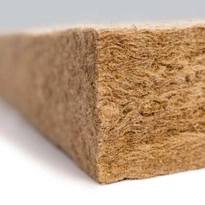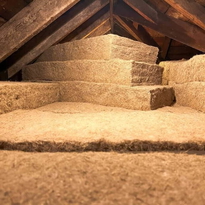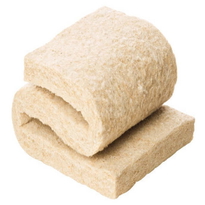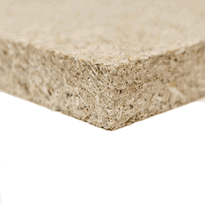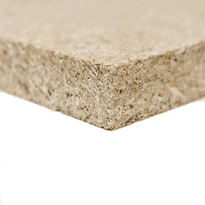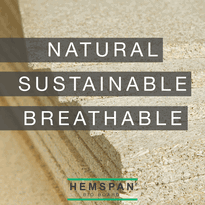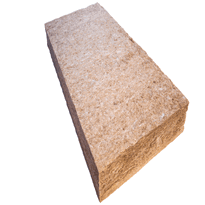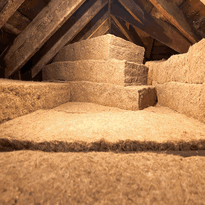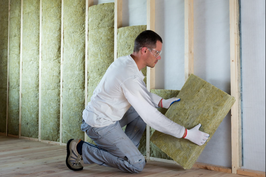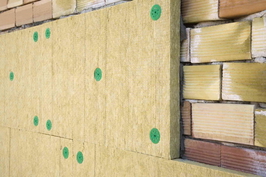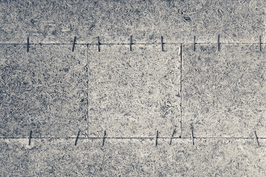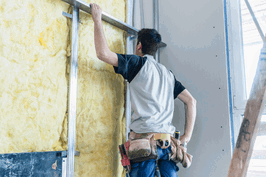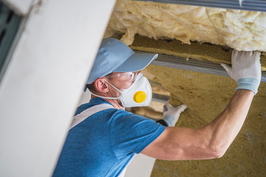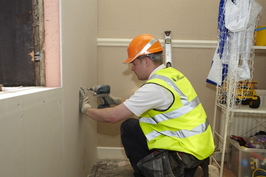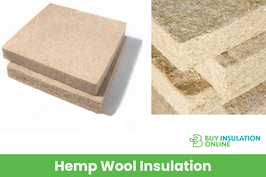Hemp Sound Insulation
Hemp sound insulation is an effective solution for reducing noise transmission through walls and ceilings. Its porous, fibrous structure excels at absorbing sound waves, particularly in the medium and high-frequency range. The natural, dense fibres of hemp provide superior soundproofing compared to traditional materials such as fiberglass, while also offering notable durability and resistance to pests, mould and moisture.
In addition to its acoustic benefits, hemp is recognized for its eco-friendly properties. It contributes to carbon capture during cultivation and is fully biodegradable, making it a sustainable choice for acoustic barriers within environmentally conscious construction practices.
Ongoing research highlights further advantages of hemp sound insulation for indoor environments, supporting healthier living spaces and contributing to more sustainable building solutions.
Acoustic Performance of Hemp Materials
Given its unique physical properties, hemp materials exhibit notable acoustic performance, primarily characterized by their high sound absorption capabilities in medium and high-frequency ranges.
Hemp acoustic panels typically achieve sound absorption coefficients (αw) around 0.75, indicating efficient performance at these frequencies. Studies demonstrate that hemp fibre composites provide significantly higher sound insulation than cotton fibre composites within similar frequency ranges.
Hemp fibres are particularly effective because their absorption capacity is high at medium to high frequencies but negligible at low frequencies, making them well-suited for typical acoustic applications. Hemp fibers are naturally porous, which enhances their ability to absorb sound waves. Increasing the hemp fiber content in composites further enhances sound absorption.
Additionally, hemp wool not only surpasses fiberglass in acoustic properties but also compares favorably with other plant-based fibers, establishing hemp as a bio-based, eco-friendly option for effective sound management. This material aligns with environmentally sustainable practices, emphasizing eco-friendliness, which is reinforced by its use of renewable resources and low-impact production methods.
Benefits of Hemp Insulation for Soundproofing
Hemp insulation offers a range of tangible benefits for soundproofing applications, primarily due to its dense, fibrous structure, which effectively damps airborne noise. Its natural composition traps sound waves, minimizing echo and reducing transmission through walls and ceilings. The dense fibers help in absorbing sound at various frequencies, making it highly effective for acoustic insulation. This makes hemp particularly suitable for homes situated near busy roads or noisy environments, where tranquillity is essential. Hemp wool’s superior sound absorption, compared to traditional materials like fiberglass, enhances overall acoustic comfort and provides a broad frequency range block, thereby improving indoor sound quality. Additionally, hemp’s durability ensures consistent acoustic performance over time, as its fibers resist moisture, mold, pests, and structural degradation. Its versatile, easy-to-install form allows precise fitting in various building cavities, creating effective, long-lasting barriers against unwanted noise without requiring significant modifications or ongoing maintenance. This resistance to pests and mould makes hemp insulation an ideal choice for those seeking a sustainable and reliable solution to improve acoustics in UK homes.
Environmental and Health Advantages of Hemp Sound Barriers
Unlike many synthetic insulation materials, hemp sound barriers provide significant environmental and health benefits owing to their natural composition and sustainable manufacturing processes. Hemp absorbs substantially more carbon dioxide during its growth than is emitted during processing, resulting in a carbon-negative footprint. Its cultivation enhances soil health, prevents erosion, and increases carbon storage within the soil, contributing positively to overall environmental sustainability. This natural ability also makes hemp an effective carbon sink, helping combat climate change. Furthermore, hemp-based insulation generates minimal waste during production due to energy-efficient manufacturing methods and is biodegradable, ensuring responsible disposal and reducing landfill impact. Hemp insulation's renewable nature contributes to a more sustainable building industry, supporting environmentally friendly construction practices.
From a health perspective, hemp doesn't emit harmful volatile organic compounds (VOCs), thereby supporting improved indoor air quality. It naturally resists mould and mildew growth, which helps maintain a healthier environment indoors.
Hemp insulation is free from chemicals such as formaldehyde and irritants like fibers from glass fibers. This absence of harmful substances reduces health risks during installation and ongoing use, making it a safer choice for occupants.
Its non-toxic properties and eco-friendly characteristics demonstrate how hemp sound barriers are a sustainable and health-conscious solution for acoustic insulation in the UK.
Conclusion
Hemp sound insulation provides a practical and environmentally friendly solution for reducing noise transmission in a variety of structures. Its strong acoustic properties, combined with advantages such as biodegradability and non-toxicity, make it an excellent choice for sustainable building practices in the UK. Ensuring proper installation and a clear understanding of hemp materials are essential for achieving optimal soundproofing performance. As a reliable alternative to traditional insulation materials, hemp sound barriers support healthier indoor environments while maintaining ecological integrity. They offer a durable and effective approach to managing noise, contributing to more comfortable and environmentally conscious buildings.
